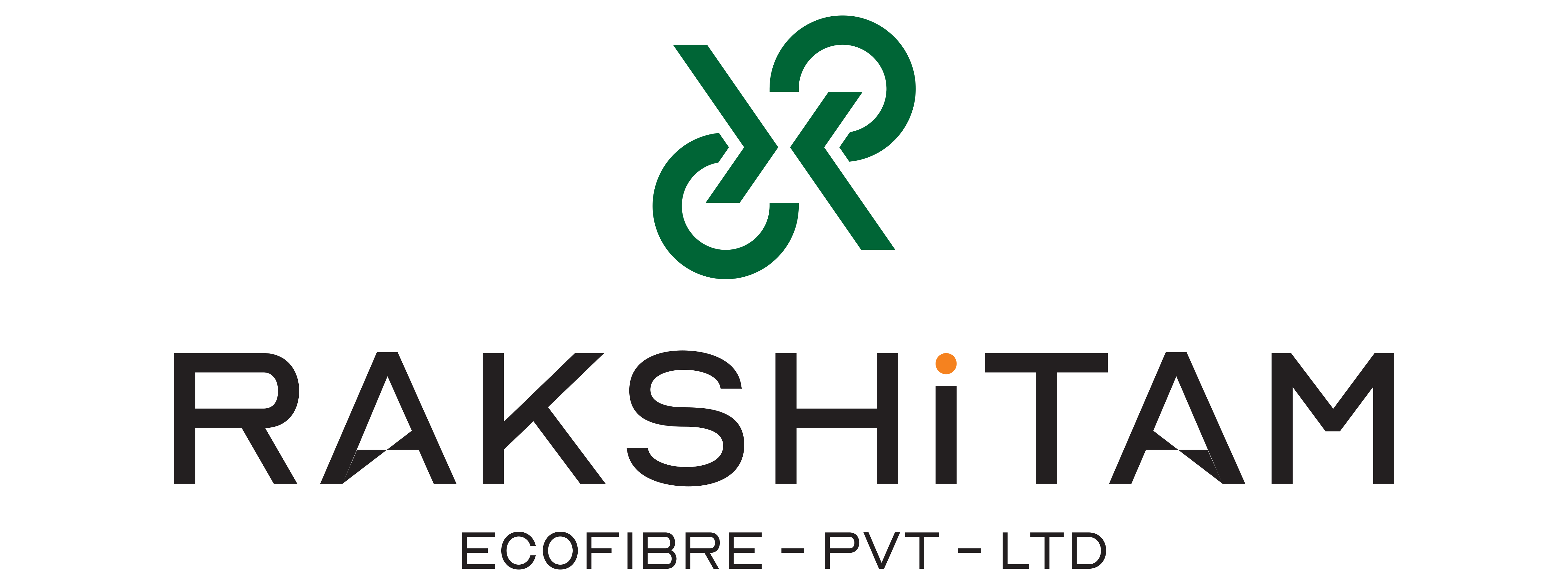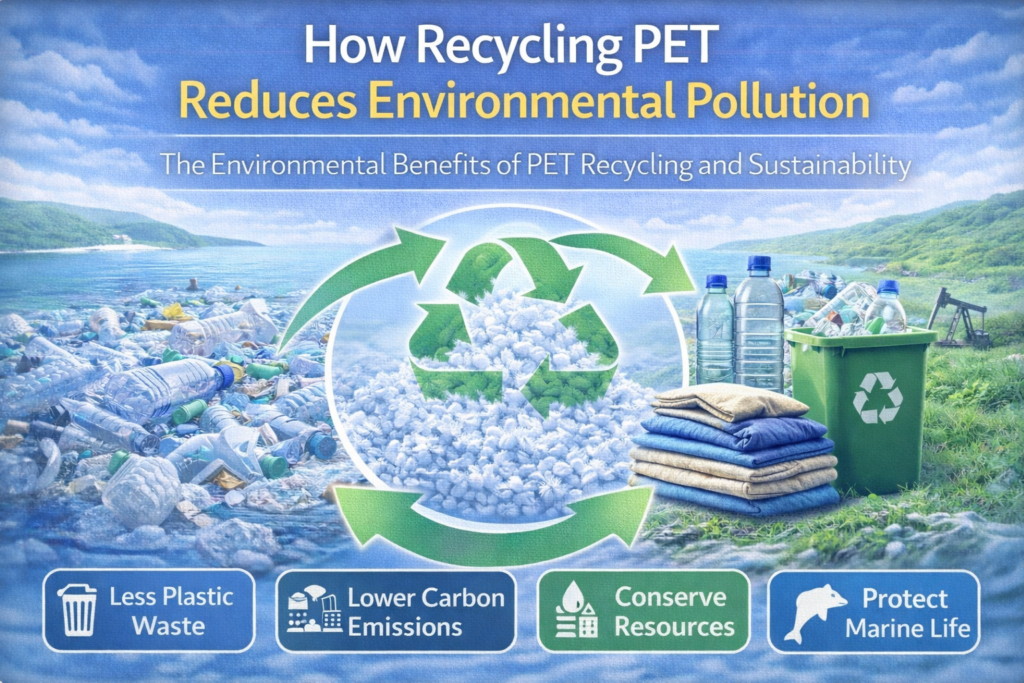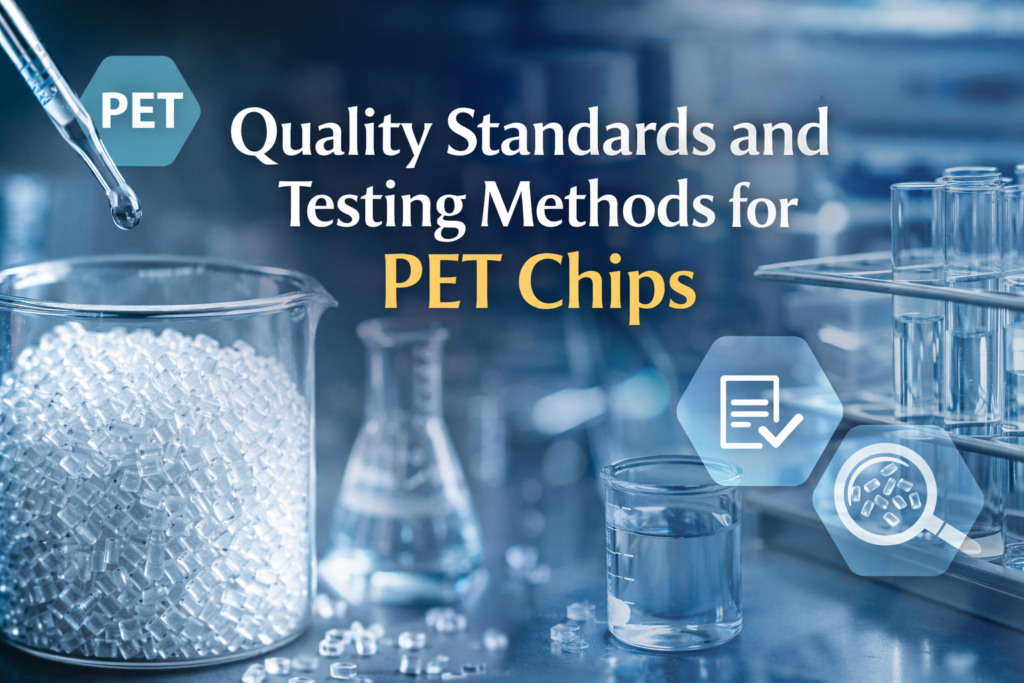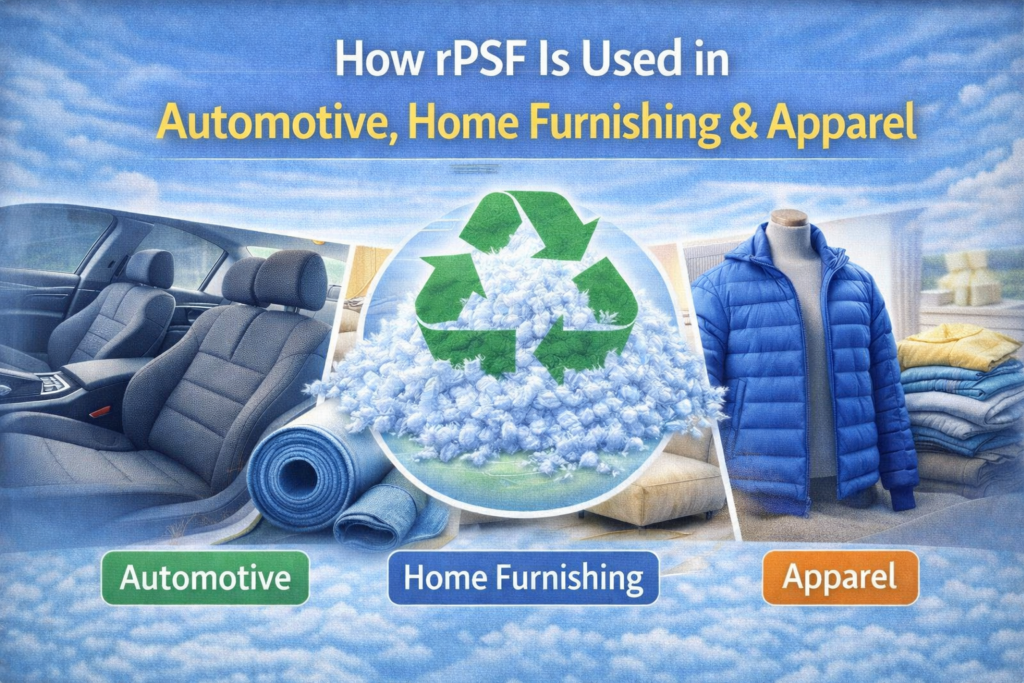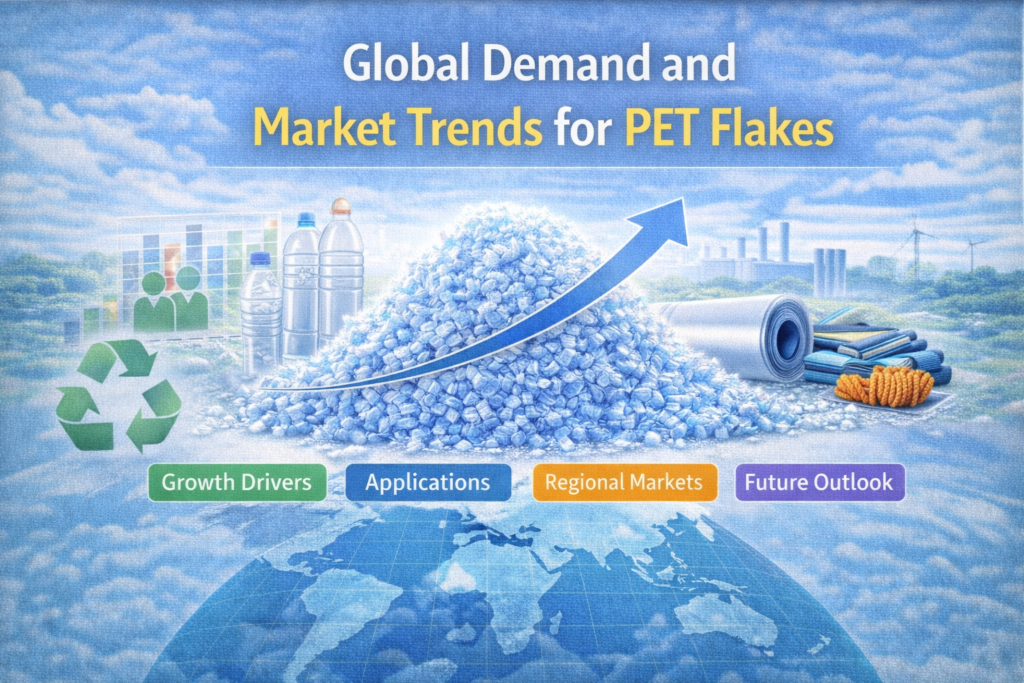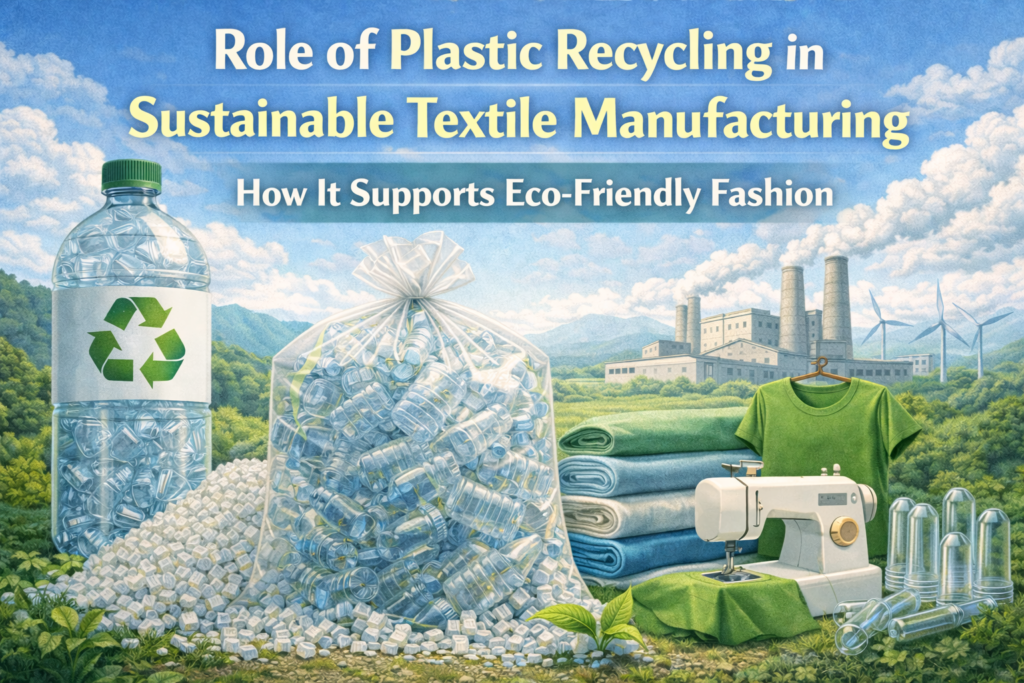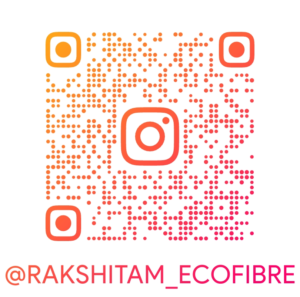As companies globally adapt to more sustainable approaches, rPET flakes (Recycled Polyethylene Terephthalate) are transforming the plastic production industry. rPET is a frontrunner of the eco-friendly alternatives being sought by manufacturers due to growing concerns regarding plastic waste and resource emissions.
This paper will examine rPET flakes and their expected impact on the plastic sector in 2025 and the years to come.
What Are rPET Flakes?
rPET flakes are derived from recycling PET plastic waste, primarily sourced from plastic bottles and containers. Post cleaning and cutting processes, flakes are generated, which serve as an input for producing:
- Fibers for textiles
- Packaging materials for food
- Strap products
- Containers and bottles
- Industrial films and sheets
By turning waste into a resource rPET helps in closing the plastic lifecycle and not only reduces waste but also enables recovery of materials.
Why rPET Flakes Will Revolutionize the Plastic Industry
1. Environmental Sustainability
The production process of rPET drastically reduces energy expenditure and greenhouse gas emissions in comparison to virgin PET. It allows manufacturers to:
- Enhance diversion from landfills
- Waste fossil fuel resources
- Reduce greenhouse gas emissions
- Meet sustainability goals
- Comply with international sustainability benchmarks
2. Supports the Circular Economy
The rPET perfectly embodies the circular economy where resources are reused instead of disposed of. It creates value from waste and optimizes resource use, which is critical for industries striving for net zero emissions.
3. Growing Consumer Demand
Consumers actively look for green alternatives, and brands with rPET packaging or textiles can effectively reach eco-conscious consumers in industries like fashion, food, or personal care.
4. Government Regulation
Like India, other countries in the world are adopting stricter policies on the use of plastics while promoting recycling, thus becoming attractive to more rPET users for their compliance and profit benefits.
🇮🇳 rPET in India: An Emerging Dynamic Sector
India ranks among the foremost producers and consumers of PET, and the recycling sector is advancing quickly. Leading rPET flake producers in India are equipping their plants with modern recycling facilities to comply with global standards. As rPET gains value as a strategic material, plastic manufacturers from numerous industries are recognizing the increasing domestic demand and export potential.
Primary Beneficiaries of rPET Flakes
- Textiles & Apparel: rPET yarns are transformed into clothes, bags, and upholstery fabrics.
- Automobile: rPET materials are utilized in the interior and insulation components of vehicles.
- FMCG: Leading companies are adopting sustainable bottle packaging made from rPET.
Forecasts for 2025 and Beyond
As sustainability becomes a priority for many businesses, recycled PET (rPET) is expected to be widely adopted as an input material within sectors that use high volumes of plastics. We expect the following by 2025:
- Potential for new investments in rPET production facilities.
- Construction, electronics, and agriculture will have novel uses for it.
- Government policies enforcing minimum quotas of rPET in packaging.
- Widespread acceptance from consumers and adoption from brands.
Also Read: Leading RPSF Manufacturers in India: Trusted Suppliers of Recycled Polyester Staple Fiber for 2025
Conclusion
Are rPET flakes the future of plastic manufacturing? Yes, without a doubt.
From an economic and sustainability viewpoint, they are a significant alternative to virgin plastic. Switching to rPET helps plastic-using manufacturers with operational risk management, ensures compliance, alleviates sustainability concerns related to plastics, and mitigates reputation challenges associated with plastics.
With each passing year, the rationale for implementing rPET becomes increasingly convincing. As we look towards 2025 and the years that follow, It is impossible to argue that moving to rPET is optional. Only a singular choice leads to a cleaner, greener, and sustainable alternative—adopting rPET solutions.
